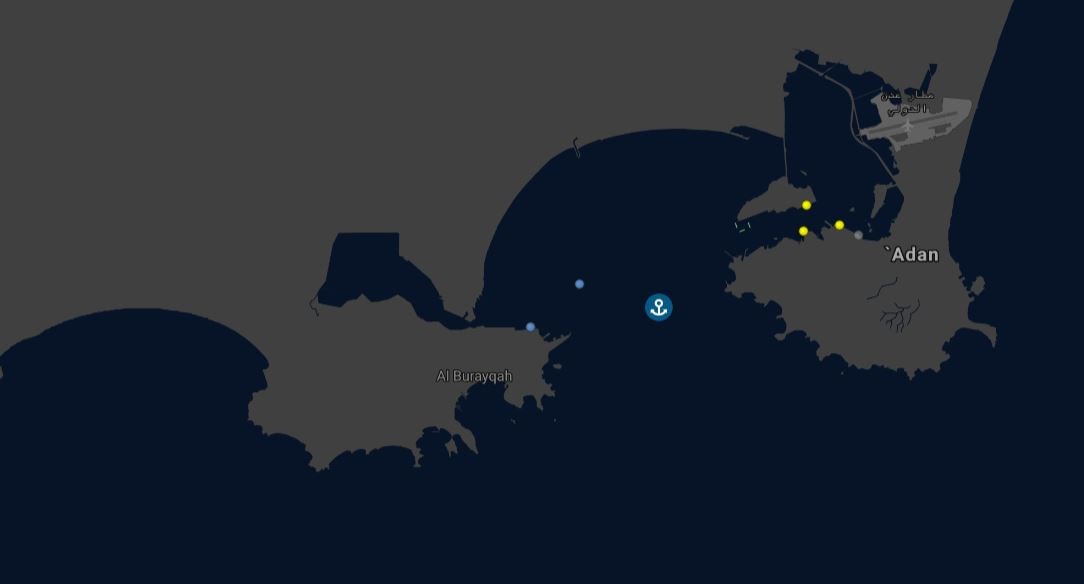
Aden Port 05.09.2023 (SS by South24 Center; Map of VesselFinder)
Last updated on: 13-09-2023 at 1 PM Aden Time
The prevailing security concerns surrounding the Port of Aden, due to the Houthi threats and their attacks on other ports, have deterred shipping companies from utilizing its services.
Ahmed Bahakim (South24)
Yemen, a country located in the Arabian Peninsula, has been plagued by a devastating conflict between the legitimate government and the Houthi militia. One of the key battlegrounds in this conflict is the control over the strategic ports, which has not only heightened tensions but also exacerbated the already dire humanitarian crisis in the country. This article explores the impact of the Houthi militia's decisions to control port imports by redirecting them to the port of Hodeidah, on trade, livelihoods, regional disparities, and the overall well-being of the Yemeni people. The militia’s tight control over maritime imports has had a disastrous effect on the country, leading to price spikes, trade disruptions, and economic instability.
The ports in Yemen, which act as lifelines for essential imports such as of food, fuel, and medicines, have become pawns in the power struggle, leaving the Yemeni people to bear the brunt of the consequences. [1]
The Houthi militia, in a bid to tighten their hold on the nation, have made a calculated move to control the flow of goods and redirect imports away from the vital Port of Aden, located on the southern coast, and divert them instead to the Port of Hodeidah, on the Red Sea coast. This deliberate maneuver has inflicted severe economic hardships on the already vulnerable Yemeni citizens, pushing them deeper into the abyss of poverty.
CONSOLIDATION OF HOUTHI POWER:
Yemen has witnessed a series of alarming Houthi attacks on vital port facilities, posing significant threats to both regional and international navigation. The recent threats targeting the Port of Aden (in a speech last week by Mahdi Al-Mashat, head of the Houthi Supreme Political Council), and attacks late last year on the Al-Dhabah port in Hadramout governorate, and Al-Nashima port in Shabwa, have far-reaching economic implications. The threats to international navigation, disruptions in oil exports, and the overall instability caused by these attacks pose significant challenges to Yemen's economy and the global trade landscape. It is crucial for international stakeholders to address these threats collectively and take proactive measures to ensure the safety and security of Yemeni ports, thereby safeguarding regional and global economic interests [2].
The Houthi militia have imposed their own customs duties and taxes on imported goods, effectively establishing their own economic system within the territories they control. This has allowed them to generate revenue and exert control over the flow of goods, further consolidating their power.
GOVERNMENT’S MISMANAGEMENT AND ECONOMIC REFORMS:
The Yemen government's mismanagement coupled with its economic reforms have also contributed to the Houthi militia's control over the Yemeni imports. The government’s measures earlier this year of raising the rate of the customs dollar and increasing prices of essential goods and services have led to economic instability. These actions have made imports more expensive, leading to inflation and reduced the purchasing power of Yemeni citizens. The resulting economic hardships have created a fertile ground for the Houthi militia to exploit the situation for their benefit. Additionally, the lack of a unified approach and clear economic policies within the Yemeni government has weakened its ability to effectively manage the economy and counter the Houthi influence [3].
ACTIVITY COMPARISON BETWEEN THE PORTS OF ADEN AND HODEIDAH:
The data retrieved from the Vessel Finder website indicates a noticeable decrease in the level of activity at the Port of Aden this year when compared to the corresponding period last year. This decline has helped bolster the influence of the Houthi militia over the import operations within Yemen. In addition, the militia's control over the Port of Hodeidah, which now serves as a major entry point for imports, has resulted in an upsurge of activity at that location.
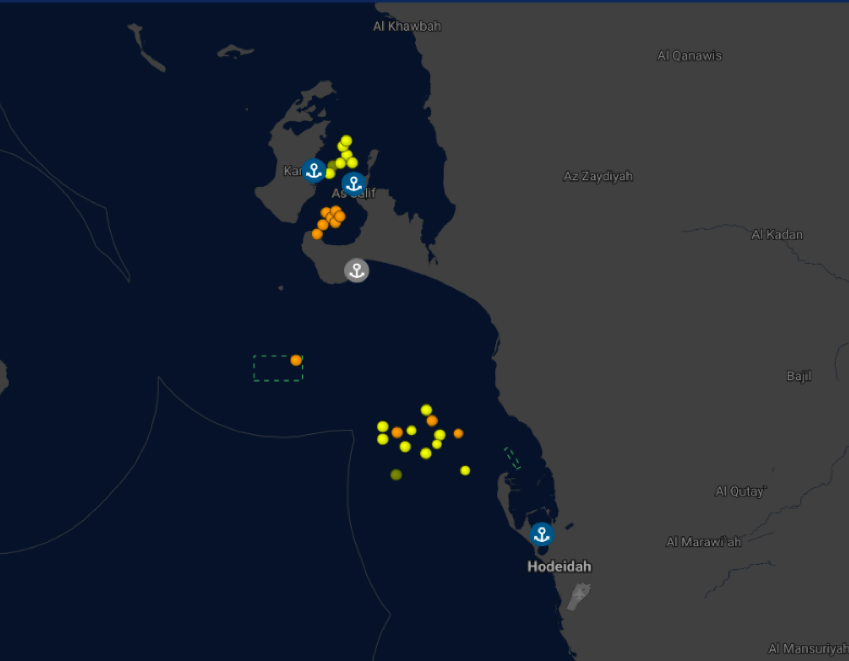
Figure 1: AIS Ship Tracker - VesselFinder. (1/9/2023). vesselfinder.com
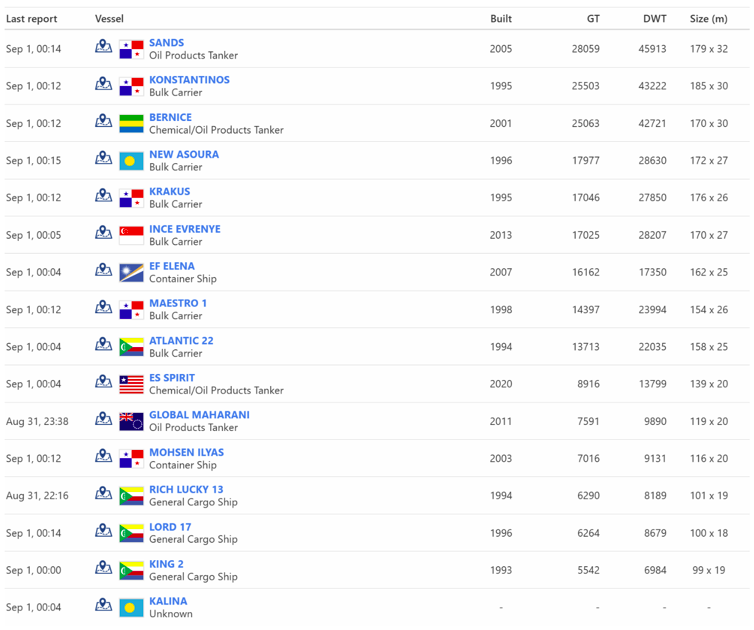
Table 1: AIS Ship Tracker - VesselFinder. (1/9/2023). vesselfinder.com
The prevailing security concerns surrounding the Port of Aden, due to the Houthi threats and their attacks on other ports, have deterred shipping companies from utilizing its services, thus contributing to its diminishing significance. By gaining authority over crucial import channels, including the Port of Hodeidah, the Houthi militia has secured a strategic advantage in regulating the inflow of goods, allowing them to impose taxes and regulations that align with their own interests.
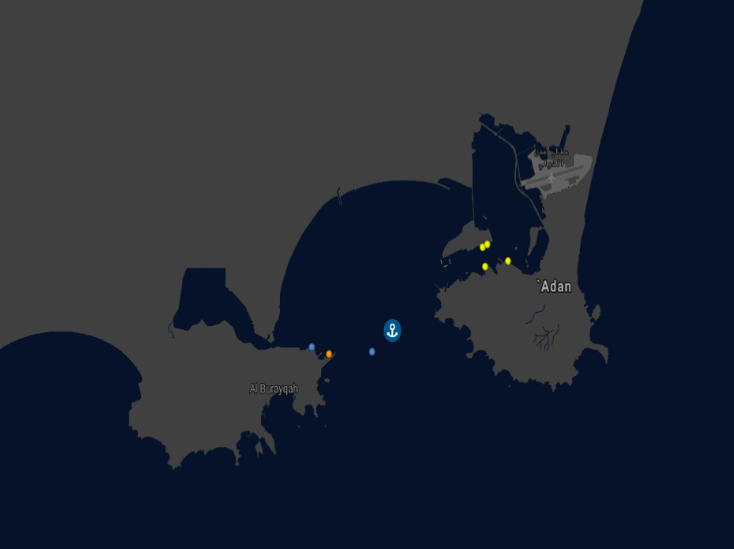
Figure 2: AIS Ship Tracker - VesselFinder. (1/9/2023). vesselfinder.com
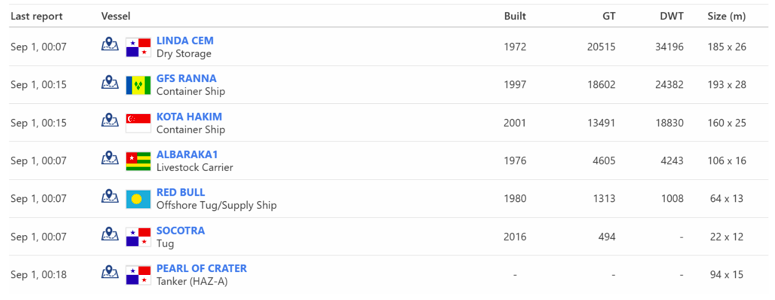
Table 2: AIS Ship Tracker - VesselFinder. (1/9/2023). vesselfinder.com
TRADE DISRUPTIONS AND ECONOMIC CONSEQUENCES:
Yemen heavily relies on imports for 90% of its needs, making the control over maritime imports a critical factor in the country's economic stability. The Houthi militia's control over commercial vessels and cargo ships carrying humanitarian aid, has caused considerable delays in delivering essential goods. These delays have led to price spikes, further damaging the already fragile Yemeni economy. The redirection of imports away from the Port of Aden, which has historically been supplying the densely populated northern regions, has widened regional disparities and economic imbalances. The north, burdened by a dense population, now faces increased scarcity and inflated prices due to limited access to goods, deepening the social and economic inequalities within the country [4].
IMPACT ON MERCHANTS AND BUSINESSES:
The Houthi militia's control over imports has badly hit Yemeni merchants and businesses. Following the diversion of imports to the Port of Hodeidah, many traders have been forced to shift their operations, disrupting the established business networks and thereby increasing costs. This has resulted in reduced profitability and job losses, further contributing to the economic struggles faced by the populace.
DECLINE OF THE PORT OF ADEN:
The decline in the activity of the Port of Aden can be attributed to various factors, including political conflict, security concerns, and government mismanagement. Other factors include: inefficient customs procedures, lack of investment in port infrastructure, and limited capacity to handle increased trade volumes. All this has resulted in reduced revenue for the port and the local economy, decline in employment opportunities, and overall economic stagnation in the region [5].
CONCLUSION:
The Houthi militia's control over imports has had a detrimental effect on the economy. Resolving the conflict and finding a comprehensive solution that prioritizes the well-being of the Yemeni people is crucial to addressing the economic problems and paving the way for sustainable development and prosperity in Yemen. Addressing issues such as security concerns, government mismanagement, and investing in port infrastructure are essential for revitalizing the Port of Aden and restoring its role as a major hub for Yemeni imports.
economist and energy researcher, working as Information Systems Specialist at the Public Electricity Corporation (PEC) in Aden
:
[1] Ahmed Bahakim. (2022, May 23). Adens wasted economic opportunities. South24. south24.net
[2] Reuters. (2022, November 21). Yemen’s Houthis attack al-Dhabba oil terminal, force ship to leave. Reuters. reuters.com
[3] South24. (2023, March 7). Between Aden and Hodeidah: The reality of commercial voyages. South24. south24.net
[4] Aden - Erem News, & Aden - Erem News. (2023). Al-Eryani: The Houthis looted one trillion and 600 billion Yemeni riyals from the port of Hodeidah. Erem News. eremnews.com
[5] Sad decline of Aden’s once-thriving port. (2013, March 6). Financial Times. ft.com